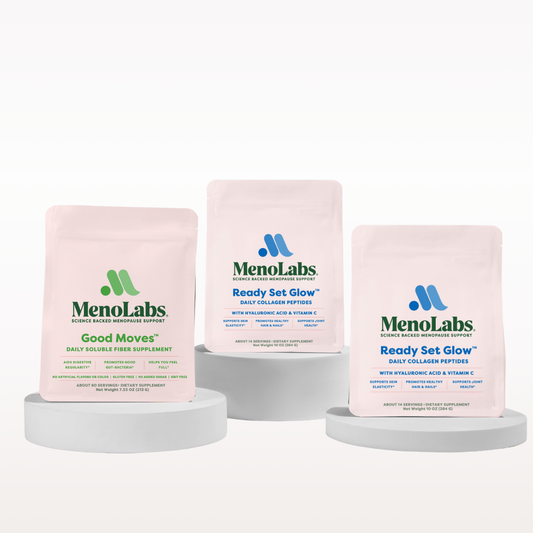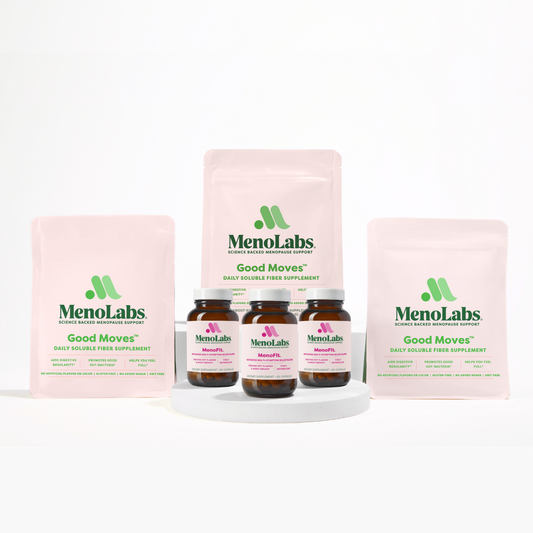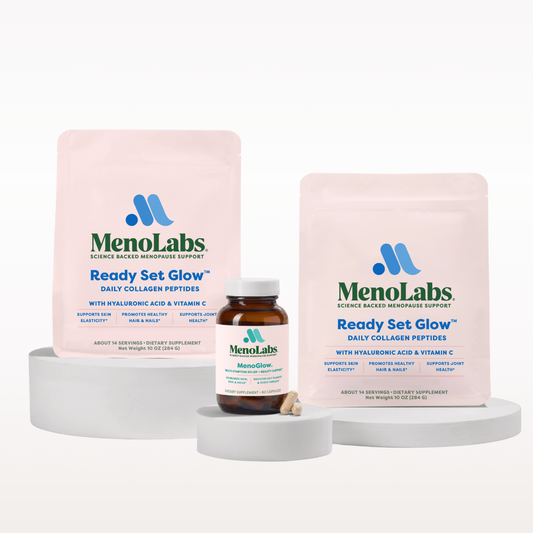Fiber — found in fruits, vegetables, legumes, nuts, and grains — is the food that feeds your gut microbiome. Fiber cannot be digested by the human stomach. Instead, it acts as a food source for the bacteria that live in the gut. Fiber is passed out through your body, which helps keep your digestive system healthy. And a fiber-rich diet can have many health benefits, particularly for women in menopause.
Fiber can slow the absorption of sugar
Fiber slows digestion, including digestion of sugars. This can help stabilize blood sugar levels. This can help with energy levels and fatigue, which many women experience in menopause.
Fiber supports a healthy microbiome
Your gut microbiome is an entire microscopic ecosystem of bacteria. And you can help your whole body by feeding it well and with the right things. Fiber can help feed your gut microbiome with what it needs. While fiber cannot be digested by humans, it’s an excellent food source for gut bacteria.
Fiber can provide your bacteria with things like amino acids and proteins that those bacteria need in order to maintain healthy, stable growth. When your bacteria feeds off of these compounds within fiber, they maintain a steady rate of growth. Populating your gut with enough beneficial bacteria can help send nutrients to your body and necessary information to your brain, which then directs how your body responds to these nutrients.
Fiber can help with weight management
The composition of our bodies changes as we age. According to one study, women gain about 1.5 pounds per year during the midlife period (age 50–60 years), independent of their initial body size or race/ethnicity. Weight management becomes even more difficult for women as changes to hormones change metabolism, fat distribution, and blood glucose levels.
Fiber can be an asset for those attempting to lose weight, as it slows down the digestion process; when this happens, your gut sends signals to your brain that it’s full and it cannot take any more food. Your brain will then register this information and suppress appetite to prevent you from overeating. This can help you better maintain a steady, moderate diet and help lower food cravings.
Fiber can lower your risk of certain diseases
Heart disease, diabetes, and IBS can all develop in women as a result of the health changes from the menopausal transition. Fiber can help lower the development of these, and certain other, diseases.
Fiber helps reduce blood glucose levels in the body. Fiber helps slow down the absorption of sugars during digestion. This reduces the number of sugars absorbed into the bloodstream, which can help improve cardiovascular health.
Its ability to lower sugar absorption into the bloodstream can help reduce the risk of these conditions from developing, but are not a guaranteed preventative on its own. Changes to all areas of lifestyle should be taken into account if you are concerned about developing diabetes or other-related heart diseases.
Related Products
Blend Besties Bundle
Fresh Start Bundle
4.7 / 5.0
(553) 553 total reviews












